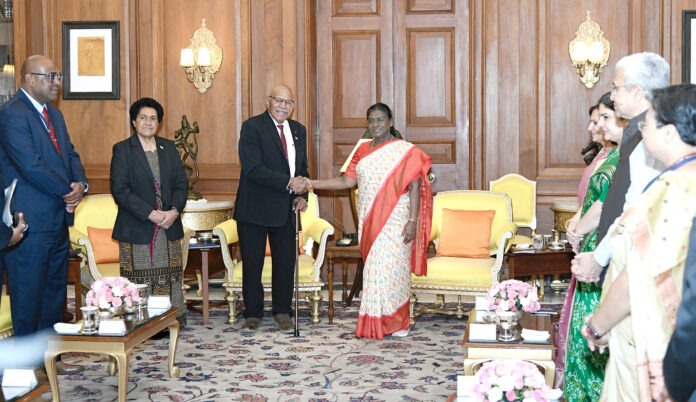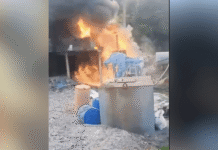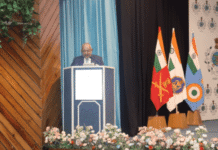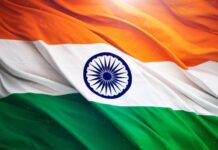
India has reaffirmed its commitment to strengthening ties with Pacific Island Countries (PICs), with President Droupadi Murmu describing Fiji as a “special partner” during a high-level meeting with Fijian Prime Minister Sitiveni Rabuka in New Delhi on Monday.
The meeting, held at Rashtrapati Bhavan, marked Rabuka’s first official visit to India since assuming office. In a statement shared by the President’s Secretariat, Murmu said India remains dedicated to deepening both bilateral relations and development partnerships with Pacific nations, while highlighting Fiji’s unique historical and cultural connection to India.
Earlier in the day, Prime Minister Narendra Modi hosted Rabuka at Hyderabad House, where the two leaders held what officials described as “wide-ranging and productive talks.” Discussions covered key areas including defence cooperation, healthcare, agriculture, trade, mobility, and enhancing people-to-people ties.
The Ministry of External Affairs confirmed that the two countries signed several Memorandums of Understanding (MoUs) during the visit. These covered sectors such as healthcare, capacity building, business cooperation, mobility, standardization, and information and communication technologies. Modi also welcomed Fiji as a member of the Indo-Pacific Oceans Initiative (IPOI), a forum launched by India to promote maritime security and sustainable use of marine resources.
In a joint statement released after the talks, Modi and Rabuka reaffirmed the “deep-rooted and longstanding” relationship between the two countries. The statement highlighted the strong people-to-people linkages, particularly through the Girmitiya community, descendants of over 60,000 Indian indentured labourers who migrated to Fiji between 1879 and 1916. Leaders from both sides acknowledged their contribution to shaping Fiji’s multicultural identity and economy.

The leaders also addressed global and regional security concerns. Both condemned the recent terrorist attack in Pahalgam, Jammu and Kashmir, which killed 26 people and injured several others. They underscored the shared commitment to countering terrorism in all forms, with pledges to cooperate in areas such as preventing radicalization, disrupting terror financing, and addressing the misuse of emerging technologies by extremist groups.
Regional security in the Indo-Pacific formed a key theme of the discussions. Modi and Rabuka agreed on the importance of a free, open, inclusive, and rules-based Indo-Pacific, stressing maritime security as a priority. Officials said India and Fiji plan to expand cooperation on joint capacity building, countering organized crime, and tackling transnational threats to ensure peace and stability in the region.
The talks also explored opportunities to enhance healthcare cooperation, particularly in capacity building and training of medical professionals. Fiji’s delegation, which included Health and Medical Services Minister Atonio Lalabalavu, held detailed discussions on partnerships in the health sector.
Observers noted that the visit is significant as India continues to expand its outreach to Pacific Island nations, aligning development cooperation with strategic objectives in the Indo-Pacific. For Fiji, the partnership brings opportunities for investment, trade, and skill development, while reinforcing its role as a regional partner in global forums.
Rabuka, accompanied by his wife and a high-level delegation, expressed optimism about the renewed momentum in bilateral ties. His visit is being seen as a stepping stone for further engagements, including enhanced cooperation in multilateral settings such as the United Nations and the Forum for India-Pacific Islands Cooperation (FIPIC).
For India, reaffirming its ties with Fiji and the broader Pacific community is part of a larger strategic vision of ensuring equitable growth, securing sea lanes, and strengthening collective resilience against both economic and security challenges.
As the two nations move forward, the visit has been described by officials as both symbolic and substantive, reflecting shared values, historical bonds, and a joint commitment to advancing prosperity in the Indo-Pacific.




